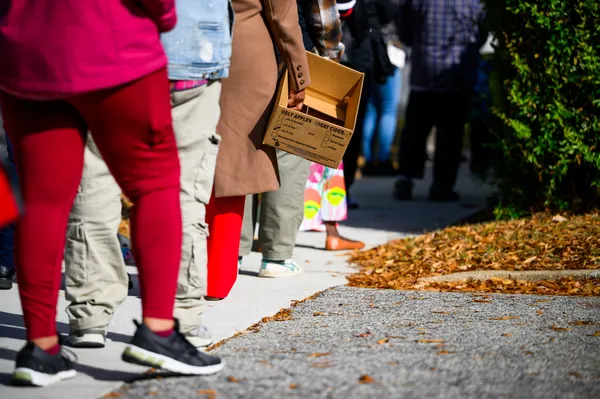
In a recent turn of events that has ramifications beyond the realm of politics, Senate Republicans on Friday rejected the Democrats' offer to scale back their shutdown demands. The proposal encompassed a one-year extension of expiring health care subsidies, an attempt to find common ground in the ongoing political deadlock. However, the rejection of this offer means the stalemate continues, with repercussions echoing through sectors such as air travel and food aid.
While the political chess game continues on Capitol Hill, the ripple effects of this shutdown are felt by ordinary Americans in their daily lives. The disruption of air travel, for instance, is more than just an inconvenience. It carries significant economic implications. Airlines are forced to cancel flights, leading to lost revenues and upset customers. For the average American planning a trip, it can mean higher ticket prices or scrapped vacation plans. For the business traveler, it can result in missed opportunities or delayed projects.
Similarly, the delay in food aid impacts the most vulnerable segments of the population. Many families depend on food aid for their daily sustenance. With the shutdown, distribution networks are crippled, and these families are left in a lurch. The long-term consequences of malnutrition and food insecurity go beyond health implications and can perpetuate the cycle of poverty.
From the perspective of an investor, the ongoing shutdown creates an environment of uncertainty. This uncertainty can lead to volatility in the markets, affecting investment portfolios. Small businesses, particularly those that rely on government contracts or services, may find themselves struggling due to unpaid invoices or unfulfilled contracts.
As we delve deeper into the potential long-term effects of this shutdown, it becomes apparent that the implications could be far-reaching. Prolonged disruptions in air travel could push airlines to cut costs, possibly resulting in job losses. A continuous delay in food aid could lead to increased reliance on emergency food banks, putting strain on these resources and potentially leading to a crisis situation.
The current situation also sets a precedent for future political and economic scenarios. The refusal to compromise in the face of significant consequences could embolden similar stances in future negotiations. This could lead to a more fractured political landscape, which can further exacerbate economic instability.
In conclusion, while the rejection of the shutdown proposal by Senate Republicans is a political decision, its impacts reach far beyond the confines of Washington. The average citizen, investor, and small business are all affected by the ongoing deadlock, and the potential long-term effects could reshape the economic and political landscape.

 Next
Next
Comments (0)
Leave a comment